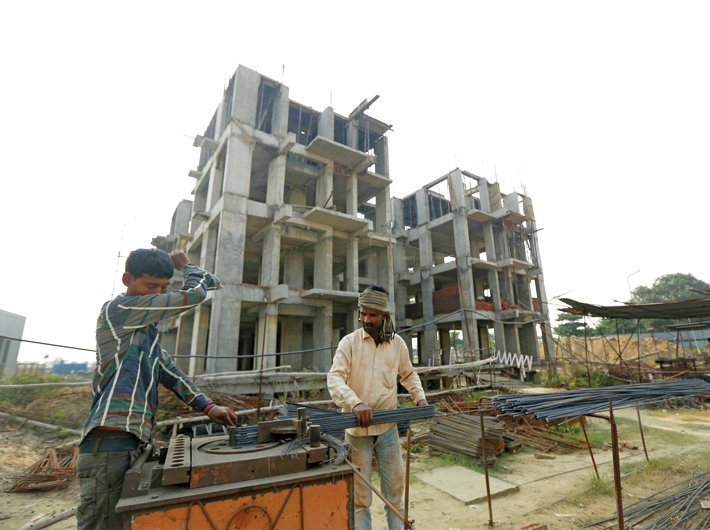One of the biggest employment providers wants use of cess funds to alleviate wage bill burden
Covid-19 may turn out to be the last straw that broke the camel’s back so far as the real estate sector is concerned. It broke out at a time when pundits were estimating the GDP to be hovering around 2.5% with unprecedent levels of unemployment. This itself was a good indicator that the real estate sector was beleaguered: Covid or no Covid. After all, the real estate sector gives employment to as much as 14% of the workforce.
Wage bill
Broader shoulders should indeed carry greater burden. Hence, the the prohibition against deduction or withdrawal of wages/ salaries during the lockdown period is well justified. More so, when the finance minister has taken care of the daily wage earners. But, is the real estate sector capable of standing on its own? In this reference, it would not be amiss to mention the Building and Other Construction Workers’ Welfare Cess Act, 1996 (“Construction Workers’ Cess Act”).
The Construction Workers’ Cess Act was enacted in 1996 to mop up funds for the Construction Workers’ Welfare Board. It enabled the government to collect a cess of 1 to 2% of the cost of construction from an employer. Non- payment of the cess or non-compliance with the provisions of the Construction Workers’ Cess Act attracts stringent penalty such as imprisonment for a term extending upto six months.
Since the enactment of the Construction Workers’ Cess Act, cess has been collected as any other statutory levy. Further, a watertight collection mechanism is stipulated under the Act. Sub-Section 2 of Section 3 of the Act provides that the cess can be collected by way of deduction at source in case of government projects or such projects where the approval of a local authority is required. Effectively, the cess is inevitable.
The demand of the industry is not as much to do away with labour welfare schemes or legislation but the deployment of the cess in order to alleviate the burden of the wage bill. This may be necessary for a sector that is reeling under a heavy debt burden notwithstanding the waivers announced by the Reserve Bank of India (RBI) on Friday March 27, 2020 as discussed below.
Debt servicing
On March 27, RBI sought to assuage the situation for the middle classes and businesses through several measures including:
1.Moratorium on Term Loans: Lending institutions were permitted to allow a moratorium of three months on payment of instalments in respect of all term loans outstanding as on March 1, 2020.
2.Deferment of interest on working capital facilities outstanding as on March 1, 2020 for upto 3 months.
3.Reduction in margins, reassessment of the working capital cycle in case of facilities in the nature of cash credit/ overdrafts extended by the lending institutions to the borrowers.
RBI also clarified that the waivers would neither result in a downgrade nor have an adverse impact on the credit ratings. The announcements are not mandatory but rather in the nature of directives to the lending institution for leniency. The entire ecosystem of banks and non-banking financial institutions is on the brink. Covid cannot undo Yes Bank, DHFL, IL&FS, PNB, Punjab and Maharashtra Co-operative Bank etc. etc. The question that now arises is whether the lending institutions are in a position to pass on the benefit to their customers.
It’s an open secret that developers are unable to obtain funds and have been struggling with inventory overhang for months on end. Notwithstanding RBI’s magnanimity, the developers may still fall within the debt trap as greater defaults by them may not be on account of temporary cash flow problems but structural infirmities such as falling value of pledged shares and other collaterals.
Unless the real estate sector is strengthened from within, nothing shall work. Covid-19 shall be a good lesson in the fallouts of poor governance, and overstretched positions.
Divya Malcolm is a Partner at Kochhar & Co., Advocates and Legal Consultants. The views expressed in this article are her own and not that of the firm.


